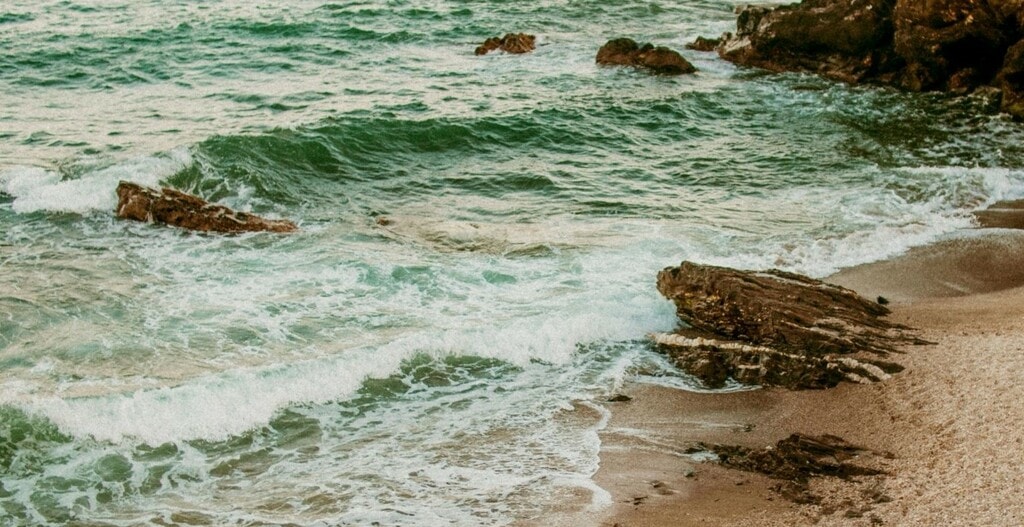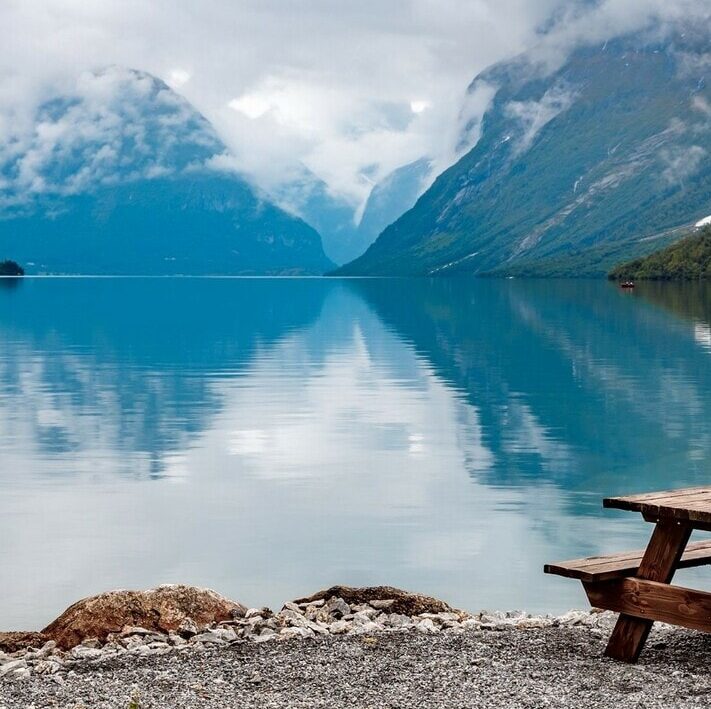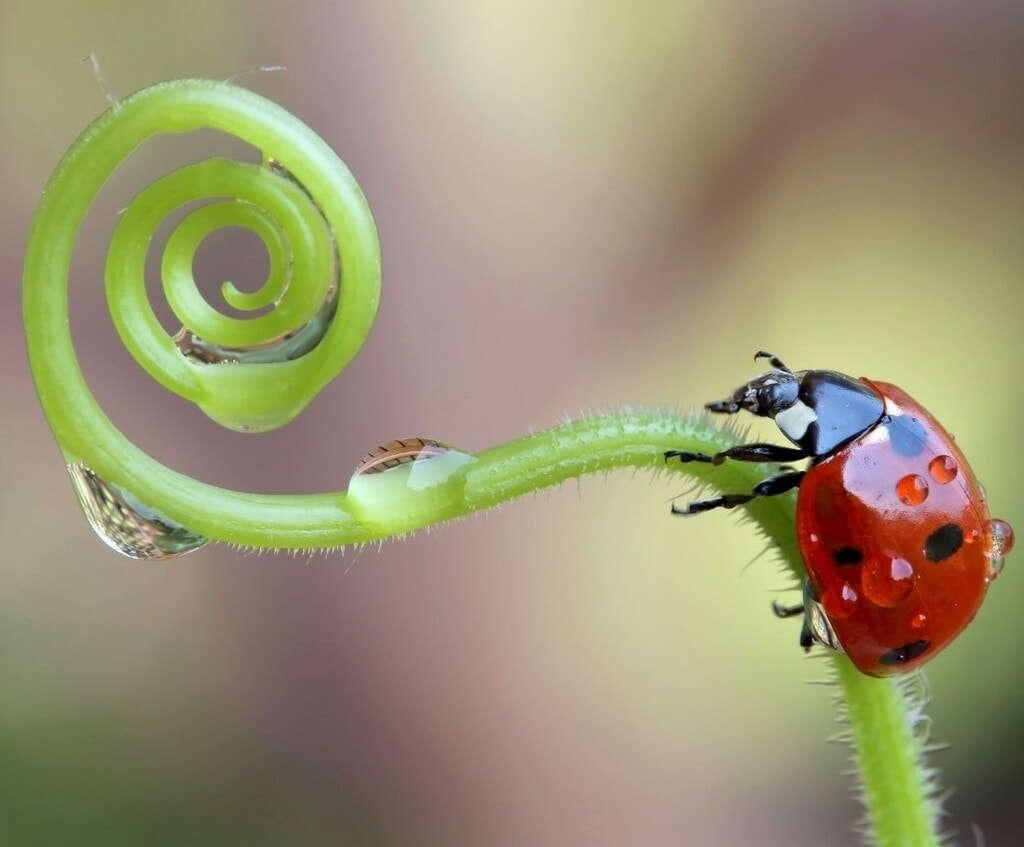We would each like to be our best self as much of the time as possible. But it’s tough, right? In the increasingly globalized—and polarized—world we have created, the two inevitable questions of our lifetime are how to share our planet, and, by extension, how to share a common dignity.
We don’t have all the answers, but the tiny ripples each of us makes by acting on an exploration of those complex questions can lead to giant waves of positive change. Indeed, we can all learn how not only to survive, but to thrive, through the development of our Global Intercultural Citizenship. Changing the world starts with each one of us, so grab a cup of coffee and discover how to bridge the difference to make a difference.
The following is excerpted from My Journey From Within: A Reflective Workbook, which has been created by Molise Italian Studies and the Center for Intercultural Citizenship as an introduction to the IC Revolution and to shine a light onto your role as an Intercultural Citizen, allowing you to dig deep, learn about yourself & others, allow yourself space for growth, and begin bridging across difference more effectively.

Imagine…
A person is walking along a beach. The sun is shining and it is a beautiful day. Off in the distance, they can see another person going back and forth between the surf’s edge and the beach. As the first person approaches, they can see that there are hundreds of starfish stranded on the sand as a result of the natural action of the tide. The other person is picking up starfish one by one and throwing them into the surf.
The first person is struck by the apparent futility of the task. There are far too many starfish. Many of them are sure to perish.
They say to the person throwing the starfish: “You must be crazy. There are hundreds of miles of beach covered with starfish. You can’t possibly make a difference.” The second person looks at the first, stoops down, picks up one more starfish, and throws it back into the ocean. Turning back, they say: “It sure made a difference to that one!”
—author unknown1
An IC Revolution
The world we humans have created is full of both wonders and complex contradictions. Each advancement brings with it new problems. We are, as a whole, living longer and healthier lives, but our population growth is becoming unsustainable. Humanity has become globalized and interconnected like never before, and yet polarization and inequality are also growing. Wealth is at an all-time high, but unsustainable development threatens future prosperity and extreme poverty remains a widespread problem.
We are able to communicate and travel worldwide, but often feel isolated behind our screens. Our access to almost instant information would have been unimaginable even 30 years ago and fuels exponential progress and expansion of knowledge, but the non-stop availability of customized news often leads to apathy, detachment, and uncritical groupthink. Wars and conflicts have become more efficient and less deadly, but more widespread, and at once both contract and expand the idea of “us.”

Technological innovation both saves time and leaves us with less of it. With more entertainment options than ever, we are less easily entertained. Indeed, with more choices in almost every facet of our lives, from leaders to jobs to lovers and friends, many end up paralyzed into inert numbness. And as our quality of life and access to an incredible variety of goods, foods, and services has risen, so has the negative impact on our physical well-being, mental stability, and, most especially, our planet.
Humanity has made incredible, revolutionary progress and we have created a world so complex and full of equally complex problems that we struggle to wrap our heads around it all. In order to survive in that world, we must do just that. Thankfully, research has shown that ongoing psychological development in adults is, in fact, possible; that, with facilitation, individuals can broaden by leaps and bounds the mental complexity with which they experience the world.2 The time to act is now.

An Ambitious Vision
Working on a scale of such scope—that of global survival—requires an ambitious, and ultimately achievable, vision. What is your vision for yourself and the world? For our part, we believe that humanity can not only survive, but thrive. We envision a world based on freedom and self-determination, until and unless it interferes with the freedom and self-determination of others. We envision a world in which the basic needs of every individual are met and progress is measured in terms of human well-being instead of capital. We envision a world in which humanity exists in balance with itself and the environment. In short, our vision is a world in which all individuals can lead safe, fulfilling, and purposeful lives in mindful harmony and cooperation with those of diverse backgrounds and experiences.
But there is a problem with our vision. Throughout most of human history, humanity has worked to protect its communities against differences, against the “other.” Writer and activist Audre Lorde said:
We have all been programmed to respond to the human differences between us with fear and loathing and to handle that difference in one of three ways: ignore it, and if that is not possible, copy it if we think it is dominant, or destroy it if we think it is subordinate. But we have no patterns for relating across our human differences as equals.3
That is, as a species, we are still just emerging from survival mode. Leading intercultural scholar Dr. Milton Bennett agrees, saying, “These millennia of clashes with otherness are still reverberating today in our ethnocentrism and fear of others. The pandemic and recent political events have made this continuing condition painfully clear.”4

Many decry the prevalence of ignorance and hate in those with whom they disagree, but can grasp neither the cause nor the solution. To paraphrase Yoda, fear—fear of the other and fear of loss—for one’s self or one’s group, however narrowly or widely that group is defined, leads to anger, polarization, and hate. Indeed, Ibram X. Kendi has demonstrated that discrimination—racial and otherwise—stems not from ignorance and hate, but instead from “economic, political, and cultural self-interests” and, in fact, is a cause of ignorance and hate.5 Kendi implores us “to fight for an equitable society for our beloved humanity, knowing, intelligently, that when we fight for humanity, we are fighting for ourselves.”6 Dr. Bennett agrees, going on to say:
The goal…is to expand the idea of “us” to include all humanity, and to do so without losing the uniqueness of our different expressions of that humanity. We can only celebrate our differences in the context of common humanity, but we can only have common humanity if it includes those differences. These kinds of multicultural groups are not a natural condition of homo sapiens. But we can learn to make them work, in the same way that mathematics is not a natural human skill but can be learned. And, like STEM skills, intercultural skills must be learned for us to survive in the world we have created.7
Thriving Through Intercultural Citizenship
The world has changed, and we have to change with it. We must learn to bridge and succeed across differences, not just cross-border or cross-community differences, but even those within family and friendship groups.

In the context of difference, we can glean much wisdom from our canine companions. Anyone who has spent more than a little time around different breeds of dogs can attest to their varied characteristic traits, as well as their individual personalities. Bulldogs are generally lazy and companionable; herding dogs, like corgis, are energetic and curious; terriers are tenacious and goofy; retrievers are active and social; collies are hard-working and intelligent; hounds are independent and affectionate; and German Shepherds are protective and fearless. And yet within breeds each dog is an individual and has a unique personality. Both across breeds and within breeds there exists uniqueness within commonality, and dogs of different breeds often coexist peacefully, playfully, and productively.
Of course, humans have unmistakable advantages over dogs and, as far as we know, every other creature on Earth—metacognition, self-awareness, and the ability to adapt, improve, and self-regulate. In order for humanity to overcome our challenges and achieve our visions, we must capitalize on these gifts. Social psychologist Geert Hofstede concludes:
We have no choice but to pursue the direction of expansion of the moral circle to all people in the world…. Depriving any group of moral rights or moral duties must be denounced…. Although moral circles can be expanded, cultures resist change. It is therefore not realistic to expect that all world citizens should become alike. Nor is it desirable or necessary that they should do so. People will differ, but they have to learn to coexist without wanting others to become just like them. Any other road is a dead end.8
Intercultural Citizenship—that is, the rights and responsibilities relevant to “improving human interactions across difference, whether within a society (due to age, gender, religion, socio-economic status, political affiliation, ethnicity, and so on) or across borders”9—must be taught and learned, and the good news is, it can be!

Wrapping Up…
The world’s problems present a choice. Do we helplessly use them as an excuse to break down and crumble, isolating and prioritizing only ourselves? Or do we empower ourselves to improve and build each other up, collaborating to both survive and thrive? Changing the world starts with each one of us joining the IC revolution. Each of us makes a ripple; together we can make waves—for starfish and humans alike.
When I was young, I wanted to change the world. I found it was difficult to change the world, so I tried to change my nation. When I found I couldn’t change the nation, I began to focus on my town. I couldn’t change the town and as I grew older, I tried to change my family.
Now in old age I realize the only thing I can change is myself, and suddenly I realize that if long ago I had changed myself, I could have made an impact on my family. My family and I could have made an impact on our town. Their impact could have changed the nation and I could indeed have changed the world.
—Author: Unknown monk around 1100AD10
My Journey From Within is a well-rounded introduction to the realm of becoming your best intercultural self. The workbook has three parts: an introduction to IC and tips on integrating it into your life, including how to craft a Personal Vision Statement & an IC daily checklist; a daily reflective journal & resources; and next steps. It is your chance to make some serious impact with just 20 minutes per day. The world is counting on you!

Are you looking for an authentic Italian experience and the chance to develop your Intercultural Citizenship? Are you craving a more purposeful education and a more intentional life? Consider Adult Study Abroad with Molise Italian Studies. Or, if you are a college or gap year student, transform yourself and your world through a unique and comprehensive Community-Based Global Learning experience centered around Intercultural Citizenship education and linguistic and cultural immersion. Enroll in Adult Study Abroad or Full Semester/Summer Internship + now to join Molise Italian Studies!
If travel is not an option, the Center for Intercultural Citizenship, in partnership with our virtual internship provider, Kambia, offers you the chance to make a global impact and develop authentic connections without leaving your home community.
- Adapted from https://consciouspanda.com/
- Kegan, Robert, and Lisa Laskow Lahey. Immunity to Change: How to Overcome It and Unlock Potential in Yourself and Your Organization. Harvard Business Press, 2009.
- Lorde, Audre. “Age, Race, Class and Sex: Women Redefining Difference,” in Sister Outsider: Essays and Speeches. Crossing Press, 1984, 115.
- Bennett, Milton. “Global Thoughts Debate.” Gateway International Group, 9 April 2021.
- Kendi, Ibram X. Stamped from the Beginning: The Definitive History of Racist Ideas in America. Bold Type Books, 2016, 9.
- Ibid., 511.
- Bennett, Milton. “Global Thoughts Debate.” Gateway International Group, 9 April 2021.
- Hofstede, Geert, et al. Cultures and Organizations: Software of the Mind. McGraw Hill, 2010, 477.
- Deardorff, Darla. UNESCO Manual for Developing Intercultural Competencies: Story Circles. Routledge Focus, 2020, 5.
- Adapted from https://consciouspanda.com/
